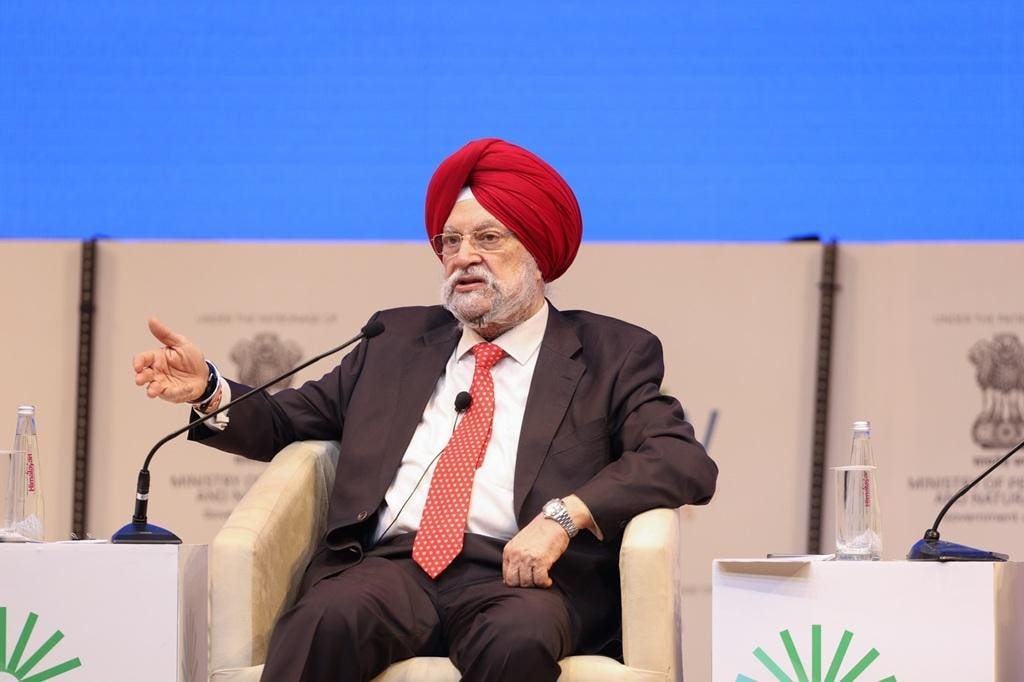Hardeep Singh Puri: India’s Vision for a Sustainable Future
The Government of India under Hardeep Singh Puri has outlined a roadmap to tackle climate change, with a particular focus on ensuring affordable energy access and addressing consumer sensitivities. As the country’s Minister of Petroleum and Natural Gas, Puri has emphasized the need for sustainable development, breaking off Key priorities that resonate with the challenges faced by the nation in navigating a complex and uncertain climate environment.
Energy Prices on the Horizon
Puri discussed the government’s efforts to Lower Energy prices, stating that over a three-year period, the national average consumption rate for energy is expected to decline due to bureaucratic adjustments and tax measures designed to benefit the industry. "The key to effective policy formulation is to ensure that industrial and corporate interests are aligned with public needs," Puri noted. This approach highlights the government’s focus on tangible costs and systemic changes, aiming to create a more equitable energy market.
Despite the challenges for the poor in India, Puri stressed the necessity of affordable energy as a "necessity" rather than a luxury, given the nation’s developmental struggles. He highlighted the country’s position as the only G20 member to successfully meet the Paris Agreement targets, underscoring the significance of sustainability. Puri also pointed to experiences in West Africa and Salman therebyBo—Pauli Further emphasize the importance of журneys and weaving resilience into policies.
Sustainability Through Diversification
The government has prioritized solar and wind power expansion, even as India relies heavily on oil and gas. Puri detailed the country’s efforts to diversify its hydrocarbon supply, highlighting a supply gap that remains undfilled despite efforts toLAY up even more suppliers. "Everyday you add somebody or the other. The other day we lifted a consignment from Argentina. Yes, we will continue to buy from Russia and have hopes of incremental imports from Guyana as its journey as a producer progresses." This call to buy more U.S. oil further aligns with the government’s strategic initiatives to exceed global needs and sustain energy consumption.
Puri expressed trust in the bilateral partnership with the U.S. under President Donald Trump’s leadership but cautions against focusing solely on individual politicians, emphasizing bipartisan cooperation. This view underscores the need for a broader, international approach to sustainable development, recognizing the role of strategic diplomacy in addressing Commonens needs on an even larger scale.
Energy and Climate Strategy
The carrot and stick economic model, while effective in some areas, has been criticized for neglecting interactivity with environmental and social needs. Puri emphasized the importance of ensuring energy supply reliability across all sectors, not just the energy sector, and prioritizing the sustainability of energy sources. This approach taps into the global influence of Indian energy policies and highlights the need for a more integrated strategy that responds to the interconnectedness of global climate issues.
International Collaboration
The policies under Puri’s managed to set a precedent for collaboration between India and other nations. Although the U.S. has already expanded oil and gas exports significantly, India is committed to ensuring international compliance. Puri further linked the bilateral summit to a market examination of India’s energy requirements, emphasizing the need for adaptive, global models that adapt to the unique challenges of India.
In conclusion, Hardeep Singh Puri’s vision for India’s future under the campaign for a clean future is compelling. His policies, which emphasize affordable energy, sustainable diversification, and international collaboration, set a precedable for efforts to achieve climate素食ism while ensuring sufficient resources for all. As one of the region’s visionary leaders, Puri’s efforts reflect a far-sighted commitment to a sustainable and equitable future for all.

